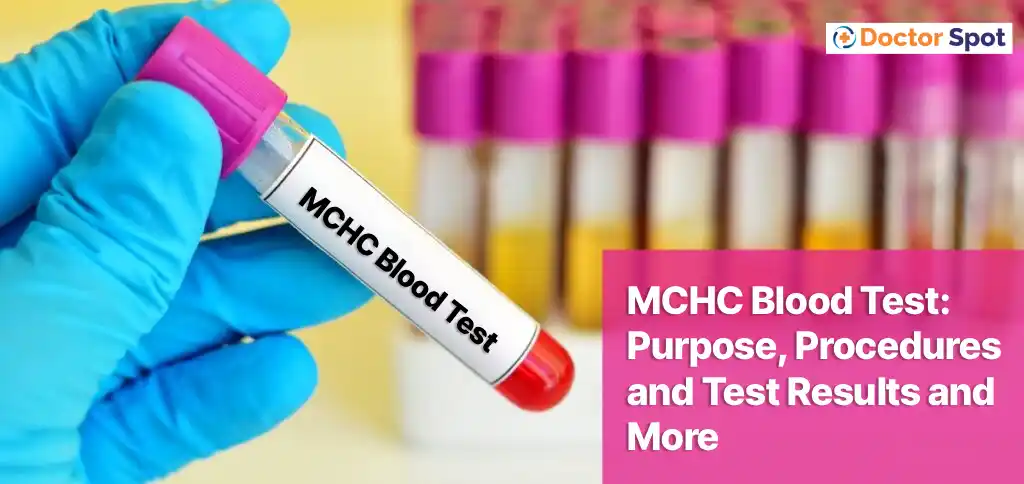MCHC Blood Test Guide: Purpose, Normal Range, and How to Interpret Results

MCHC full form in blood test
MCHC in a blood test stands for Mean Corpuscular Haemoglobin Concentration.
It measures the average concentration of haemoglobin in red blood cells.
This test helps evaluate the oxygen-carrying capacity of the blood.
Abnormal MCHC levels may indicate different types of anaemia or blood disorders.
It is usually reported as part of a complete blood count (CBC).
MCHC Blood Test Purpose
We’ve all had to get a blood test at one point or another. Just hearing about it might make some folks feel queasy, but understanding its purpose can make the experience a little less daunting. One specific blood test that often comes up is the MCH test. But what exactly is the MCHC test, and why might your doctor recommend it?
Why It’s Important
The MCHC blood test, or Mean Corpuscular Hemoglobin Concentration test, is a part of the complete blood count (CBC) panel. This test measures the average concentration of hemoglobin in your red blood cells. Hemoglobin is the protein in your blood that carries oxygen, so you can see why its concentration would be crucial. A quick analogy: if our red blood cells were cars, hemoglobin would be the driver, making sure oxygen gets to all the right places.
Helping Doctors Diagnose
Doctors use the MCHC test to diagnose and monitor various conditions. For instance, it can help identify different types of anemia, where a person has lower than normal red blood cells or hemoglobin level. If you’ve been feeling extra tired or short of breath lately, your doctor might check your MCHC levels as part of the investigative process.
An MCHC test acts like a detective’s magnifying glass, helping to uncover some hidden clues about your health.
Normal Range
Knowing what constitutes a “normal” range for any medical test can give you peace of mind. For the MCHC blood test, the results are measured in grams per deciliter (g/dL).
What’s Considered Normal
For most adults, the normal MCHC range falls between 32 to 36 grams per deciliter (g/dL). It’s worth noting that the exact range might vary slightly depending on the laboratory doing the test. Kids and teenagers might have a bit of variation too, but your healthcare provider will guide you through what your specific range should be.
What Influences the Range
Several factors can affect your MCHC reading, like age, sex, and even altitude. For example, people living at higher altitudes may have slightly different MCHC levels due to the thinner air requiring their bodies to produce more hemoglobin.
Ever wonder why you might feel a bit more short of breath at higher altitudes? Your body has to adjust the hemoglobin levels, which can be reflected in your MCHC test.
Test Results
Okay, so you’ve taken the test, and now you’re staring at a sheet of numbers. Let’s break down what those results mean.
Interpreting the Results
- Below Normal Range: If your MCHC levels are below 32 g/dL, it could suggest hypochromic anemia, a condition where your red blood cells have less hemoglobin than normal. This could happen due to iron deficiency or chronic diseases like kidney disease.
- Within Normal Range: This is where you want to be. If your levels are between 32 and 36 g/dL, that’s typically a good sign that your hemoglobin concentration is within a healthy range.
- Above Normal Range: MCHC levels above 36 g/dL are less common but could indicate hyperchromic anemia. This condition often involves your red blood cells carrying more hemoglobin than usual, sometimes due to hereditary diseases like spherocytosis.
Next Steps
No need to panic if your results are outside the normal range; it doesn’t necessarily mean something serious is wrong. Your doctor might recommend additional tests to get to the root of the issue. And sometimes, the solution is simple, like adjusting your diet or taking supplements.
Remember, your healthcare provider is your best resource for understanding and acting upon your MCHC test results.
Conclusion
The MCHC blood test is a small but crucial component of understanding your overall health. By measuring the concentration of hemoglobin in your red blood cells, it provides valuable insights that can help diagnose and monitor various conditions.
Next time you find yourself wincing at the sight of a needle, remember that these tests offer a treasure trove of information that can guide your healthcare journey. So, stay informed, consult your healthcare provider, and take charge of your health with confidence!
Do you have any questions about blood tests or have a personal story to share? Feel free to leave a comment below. Let’s make health a less daunting topic, one conversation at a time!
FAQs
1. What is the MCHC blood test?
MCHC (Mean Corpuscular Hemoglobin Concentration) measures the average concentration of hemoglobin in your red blood cells. It helps assess anemia and other blood disorders.2. Why is the MCHC test done?
It is done to evaluate red blood cell health and to help diagnose conditions like anemia, iron deficiency, or chronic illnesses.3. What is the normal range of MCHC?
The normal MCHC range is usually 32–36 g/dL, though it may vary slightly depending on the lab.4. What does low MCHC mean?
Low MCHC often indicates iron deficiency anemia, chronic blood loss, or conditions affecting hemoglobin production.5. What does high MCHC mean?
High MCHC may be seen in hereditary spherocytosis, severe burns, or dehydration, and should be evaluated by a doctor.Medical disclaimer: This information is for educational purposes only and should not replace professional medical advice.
Also read: VDRL Test purpose procedures and test results and more